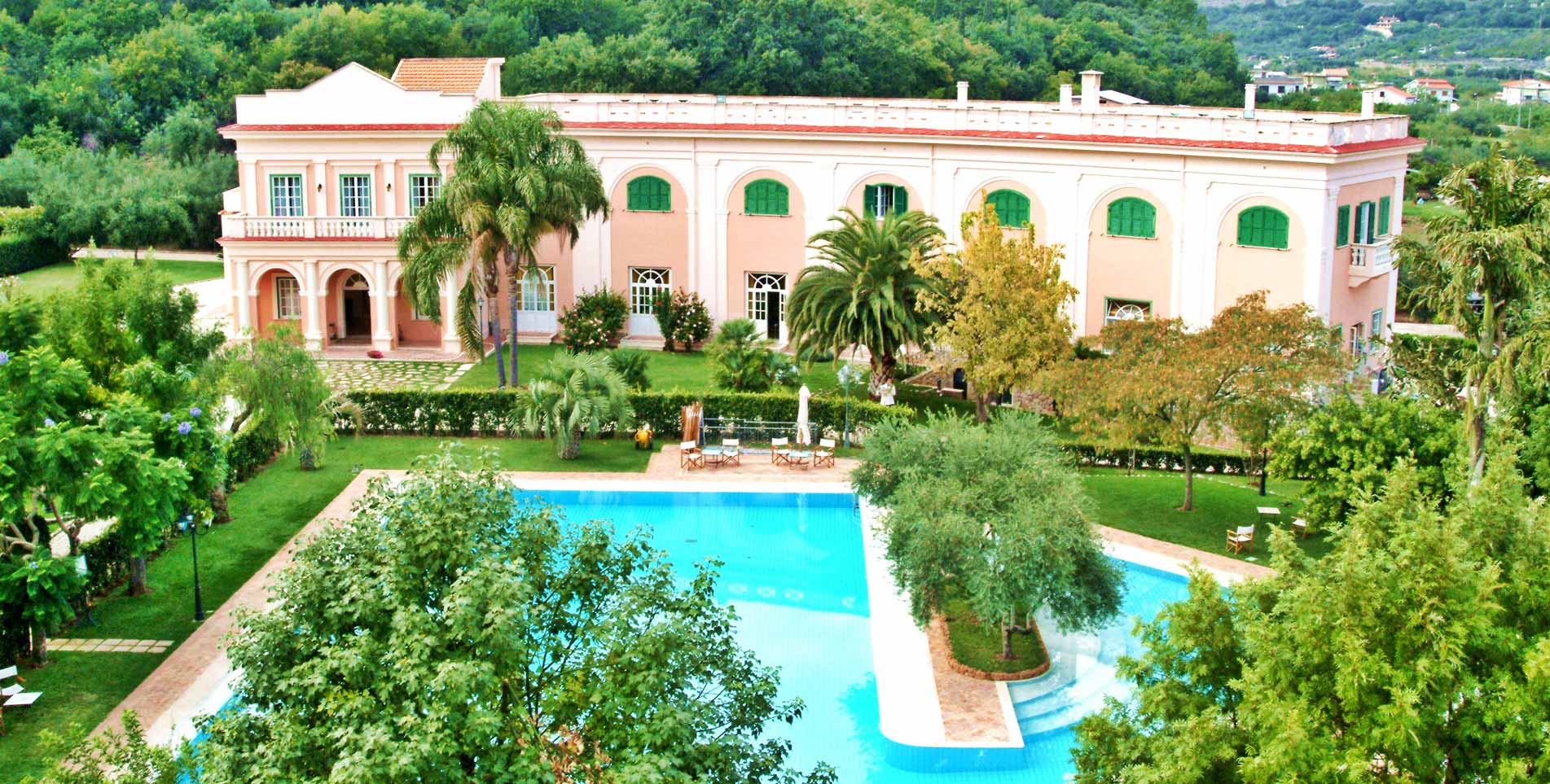
"The Convent"
In 1930, the priests of the “Pontifical Irish College” began construction of the building known as
“The Convent” and transformed the properties belonging to Russian Count Stembock into a retreat and training center for Irish novice priests. During World War II, as the priests were nearing completion of the building, which was already partially in use, they were forced to abandon the area. The buildings were initially occupied by the German command of the 274th Grenadier Regiment, and later by a military hospital for the Allied liberation forces. After the war, the Irish priests returned to what had been the splendid buildings, surrounded by marvelous gardens that greatly fostered their concentration, though the structures had been severely damaged by the conflict. They resided there only during the spring and summer seasons until the 1960s, after which they relocated to Rome, leaving the buildings and gardens neglected for nearly two decades, resulting in their severe deterioration. The Spinosa family from Gaeta acquired the property in 1973 and, after countless bureaucratic challenges, managed to initiate restoration and conservation work in 1984. After a decade of work, they transformed the property into an elegant and exclusive hospitality venue.
Evocative and charming spaces
The restoration and conservation work on the former church included the altar, crafted from polychrome marble, and the elegant frescoed ciborium. The wooden roof of the chapel was rebuilt, and exquisite marble floors were laid. Arches were constructed inside the former refectory, and the old choir and kitchen areas were defined by skillfully modeled walls, which imparted elegance and charm to the spaces. The former church and its large halls, whose historical charm has been restored, can now host wedding banquets, receptions, concerts, and meetings.
THIRTEEN ROOMS WITH PANORAMIC VIEWS
On the first floor, where the cells where the novices stayed used to be, there are now thirteen rooms with a panoramic view of the Gulf of Gaeta or towards the countryside and the surrounding hills covered with a lush forest of trees and plants characteristic of the Mediterranean scrub.
















